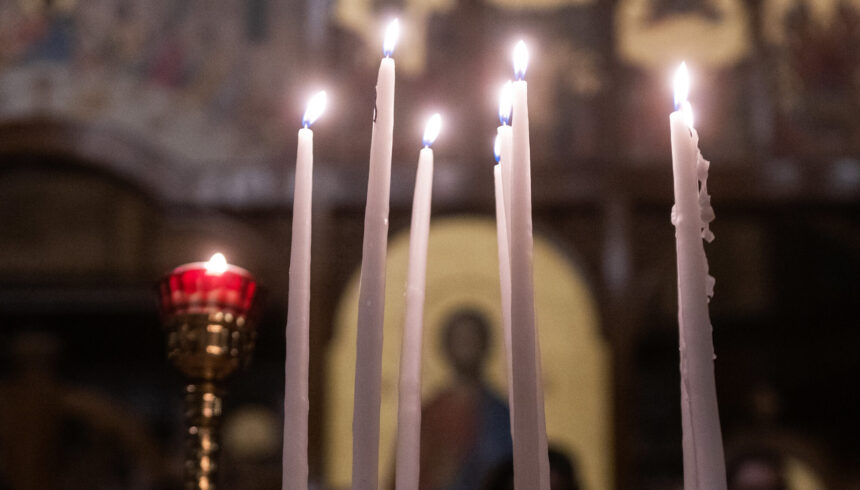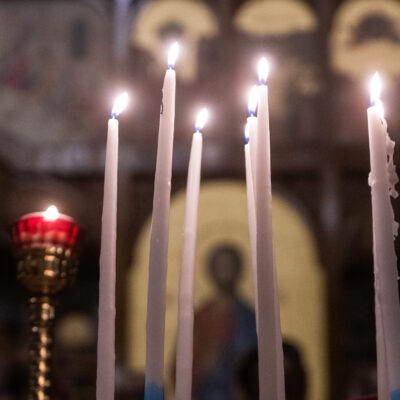One year on from the invasion of Ukraine, I recall the shocked horror I felt as the catastrophic events there first began to unfold, and I think of its ongoing impact. In particular, many people have been displaced by the war, forced to escape their homes, some still struggling to find safe haven, all looking on in horror. Our society has responded with deep compassion towards them, and actually galvanised a deeply anti-refugee government to do something to help. In a context where so many bear similar burdens to Ukrainian refugees, this should give us hope. It should also show us what is possible.
In the immediate aftermath of the invasion, I reflected on the outpouring of public sympathy and compassion towards Ukrainian refugees in the UK and across Europe. Families and individuals desperately wanted to welcome those in need of sanctuary from the war, and in many cases were eager to open their homes to them. I also wrote about how the UK government’s response was more complex and left much to be desired. The Homes for Ukraine scheme did open a route by which some Ukrainians could travel to the UK safely, and without fear of facing legal penalties. However, this was happening in a wider legal and policy context, as the government prepared to pass the Nationality and Borders Bill that would punish refugees for travelling in the only way available to them, and the government’s response to Ukrainian refugees was hampered by its cruel commitment to punishing refugees for travelling without prior authorisation. It refused to follow EU countries in waiving visas for Ukrainians seeking sanctuary, and many struggled to get to the UK as a result.
A year on, as the war in Ukraine continues, the public policy landscape towards refugees in the UK has predictably deteriorated further: since the invasion of Ukraine, the government has passed the Nationality and Borders Act and made plans to forcibly and permanently transfer people seeking asylum to Rwanda and vastly increase the use of immigration detention, which subjects people to deep trauma. The Home Secretary has compared people seeking sanctuary to an “invasion” and refused to apologise for her language even when challenged on it by a Joan Salter, a Holocaust survivor warning of its potential dangerous consequences. Nor is this anti-refugee hostility confined to the sphere of public policy: On 10th February, members of the far right led violent protests outside a hotel accommodating asylum seekers in Merseyside. Joan Salter’s warning that dehumanising language has dire consequences seems all too prescient in light of this. The situation feels bleak.
Yet, at the same time, we have continued to see compassion, welcome, and solidarity towards Ukrainians from communities across the UK. Over the last year, the British public, among many others, has responded to Ukrainians seeking sanctuary with an outpouring of sympathy, welcoming them into British communities. In the face of the horror in Ukraine, we have seen a strong and widespread desire to welcome refugees. Communities across the UK have welcomed over 100,000 Ukrainians, under a scheme that, in England, relies on individuals opening up their homes to make it work at all. Here there is a deep hospitality towards the stranger. It reminds us that the anti-refugee protestors do not represent British communities, but that kindness and welcome is found there. And at JRS, we see such kindness on a daily basis, from those who host refugees and many others who give and volunteer to support them. In the hosting of refugees, Ukrainians and others, on the one hand, and violently protesting against them, on the other, we have two starkly different attitudes to human beings in need – one of support and welcome, the other of dehumanisation and destruction. Either could shape public policy. In the response to Ukraine, we see government policy that has, however imperfectly, bowed to public pressure towards the first attitude. Though there is still much more that should be done for Ukrainian refugees, this does begin to show us what public policy towards refugees could look like, and it shows us that there are communities eager to see such a change.
The violence, and destruction of people’s lives that began a year ago with the invasion of Ukraine, is unabated. People continue to be displaced by the war, and those who escaped a year ago remain exiled from home. And this is happening in so many other parts of the world as well. But another world is possible. And we can play a part in building it. We can stand in solidarity with the displaced, but that requires a very new approach.
Photo: ©cbcew.org/Mazur



